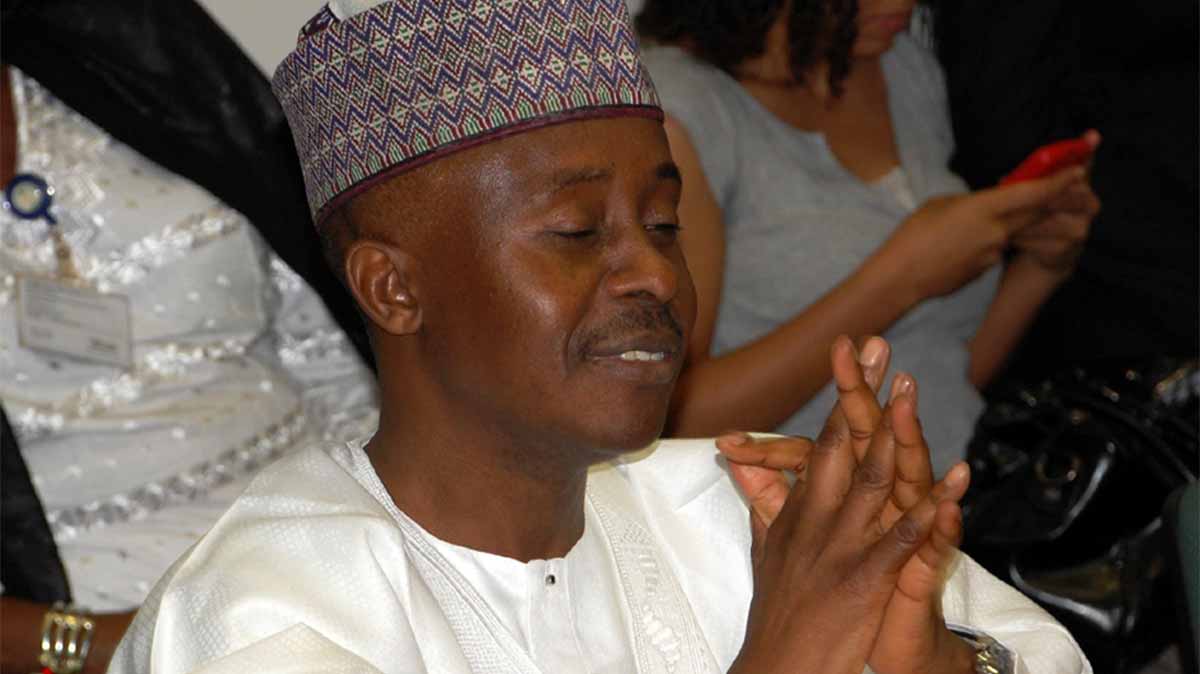By Editorial Board
The jailing for graft of Farouk Lawan, former member of the House of Representatives is at one level his personal tragedy. But, at another level, the tragedy of Nigeria – its leadership, its elite, its political institutions and more. The important lesson is that of the terrible fall from grace of a certain ‘‘Mr. Integrity,’’ who was at a time in his political career, a shiny example of youthful courage to challenge the very act of corruption that has now undone him. Former Speaker of the House Patricia Etteh and her backers will never forget Lawan even if, for obvious reasons, they may not be sorry for the leader of the ‘‘Integrity Group’’ now.
Whosoever lays claim to personal integrity must not only walk his talk, but be seen to so do. Lawan was, by his actions, so vociferous in his claim to personal integrity, a standard he confidently challenged his fellow lawmakers to match, that for a time his reputation stood out in sharp to the public opinion of the national legislature to which he belonged.
Deriving from this is the important lesson that everyone who claims a moral high ground must be wary lest he falls. For, as sure as the sun shines, temptation shall come and in a way and manner unexpected. Lawan was caught in a sting operation executed jointly by businessman Femi Otedola whose oil and gas dealing company was indicted by the findings of an ad-hoc committee of the house that investigated payment of subsidy to importers of petroleum products. He demanded from, or he was offered by Otedola (depending on which story one chooses to believe) a bribe of $3 million, with $500,000 given to Lawan. And he accepted it. Otedola notified, in advance, law enforcement agencies of a corrupt transaction about to take place, Lawan did not. The evidence against him (video recording and a defendant turned prosecution witness) were simply damning.
That this case dragged on for nine years is a blot on the Nigerian judicial process and anti-corruption campaign. Lawan was charged to court in February 2013, four judges sat over it for reasons that ranged from the promotion of Justice Mudashiru Oniyangi to the Court of Appeal, through Justice Adebukola Banjoko who excused himself because of Lawan’s complaint of bias, to Justice Angela Otaluka who again Lawan found unacceptable, then Justice Yusuf Halilu and finally back to Justice Otaluka. She could not help but remark, rightly, the ‘‘chequered history’’ and ‘‘the several needless adjournments’’ of the case.
That persons in the dock try, for a range of self-serving reasons, all sorts of gimmicks to delay the judicial process is well known. Members of the legal profession in whatever group – the Bar, the Bench- have a duty to not allow mischief to delay the wheel of justice. Both lawyers and judges are, as it is popularly said, servants in the temple of justice. If so, let no one manipulate the judicial process to achieve crooked self-serving ends and for at least two reasons. It is trite to say that justice delayed implies justice denied. Besides, too many high profile cases allowed to drag on for flimsy reasons that defy commonsense tend to reinforce the notion in the minds of many citizens that the law is somewhat skewed in favour of the high and the mighty. In a decent society where the rule of law prevails, the law must be no respecter of persons. Law officers at every level -investigation, prosecution, adjudication – must regard themselves as fully responsible to sustain and be seen to so demonstrate to the public, that the law is for all persons.
Lawan, 58, four-term member of the lower chamber, once the chairman of the Committee on Finance, now convicted on a three-count charge and sentenced to a total of 19 years will spend the next seven or so years in prison –unless he successfully overturns his conviction. Society, nevertheless, can be unforgiving to a man who it appears pretended to be what he was not. Lawan’s case has only confirmed what many would rather believe. To that extent, his tragedy is the tragedy of his class.
Members of the House of Representatives are labelled ‘‘honourable.’’ Lawan is just one of many instances of outrageously dishonourable acts that come into the public domain. As far back as its early years, the very first speaker of the House resigned because of certificate fraud. Even the Senate is not immune to allegations of unedifying behaviour. Proofs of this are rife in the public space.
It is sad that members of the country’s law making body are accused of dishonourable acts but allowed by the leadership to continue to make laws for other law abiding citizens. That is ignoble, it is distasteful. Once accused, a self-respecting holder of high office should, nay must, step aside until he or she clears his or her name. So a sense of decency and shame demands. Respect and respectability are earned. If the members of the National Assembly to which until not too long ago Lawan belonged, want to be genuinely held in high esteem, they must search their souls and commit themselves to deserve to those tags they so much covet.
All put together, it is the tragedy of Nigeria that its political leaders in particular and elite in general, exhibit such degenerate behaviour that, as can be seen everywhere, keeps the country in a state of degeneracy. And this country has become a butt even among African countries.
Some elite theorists think that the history of a society is the history of its elite. They just may be right with Nigeria as a perfect case study. That is not an enviable reputation at all. If corruption is not to kill Nigeria, our politicians must change their ways, for their personal sake and the sake of the country they govern.

